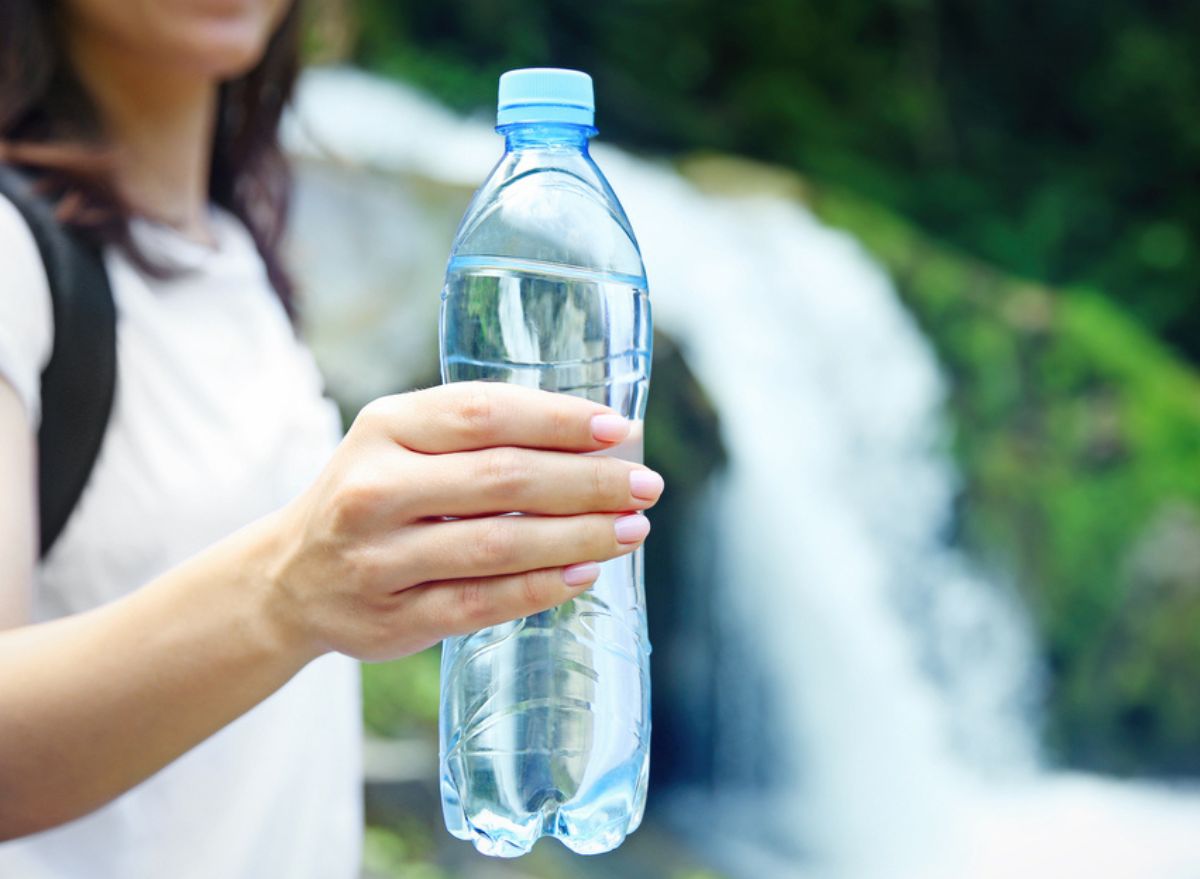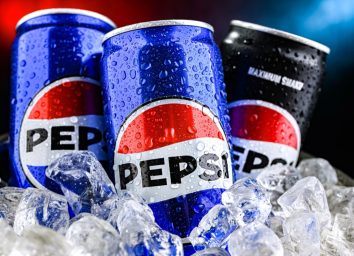What Drinking Alkaline Water Really Does to Your Body

If you aren't familiar with alkaline water and its touted benefits, you aren't alone. You have probably passed by these products in the grocery store, and perhaps have seen water brands marketing this feature, but how is alkaline water different than other bottled water?
While the hype around alkaline water has created a lot of interest in the product, the health benefits are not as concrete as one may think. Read on to learn more about what drinking alkaline water really does to your body.
Then, for more healthy drinking tips check out The Absolute Worst Drinks for High Blood Sugar.
What are the benefits of drinking alkaline water?
"Alkaline" is a term used to describe pH level on a scale of 0 to 14, where a pH of 0 is very acidic and a pH of 14 is very alkaline. Regular drinking water has a pH of about 7, while alkaline water holds a pH of 8 to 9.
But why is this of value? Well, some proponents of an alkaline diet suggest consuming more alkaline food and drink may be beneficial for health, and the acidity often associated with the standard American diet may increase risk of cancer development and negatively impact bone health. At this time, there is not enough significant research to confirm these health claims, although, there is likely little harm involved in consuming alkaline water.
One of the lines of thought around the benefits of drinking alkaline water is that it can neutralize acidity in the body, potentially warding off health issues. However, the body naturally maintains a very tight pH range on its own through a series of complex checks and balances involving the lungs, brain, and kidneys, and chemical buffers in the blood.
Consuming a very acidic diet, like one that includes high amounts of meat, dairy, and alcohol, and few portions of fruits and vegetables, may create more work for these systems. However, it will likely not keep the body from maintaining proper pH, and therefore the help of alkaline water may not be needed.
RELATED: Surprising Side Effects of Drinking Lemon Water
What does the evidence say?
Drinking alkaline water likely has no downside, but the benefits promoted by supporters are not concretely supported by research. And while there isn't enough research yet, there are some studies that support health benefits associated with drinking alkaline water.
For example, one study found alkaline water with a pH of 8.8 can denature pepsin, which could have therapeutic benefits for those suffering from reflux disease. Another study found that drinking high-pH electrolyte water improved blood viscosity, a metric that tells how efficiently blood flows through vessels.
While these are positive attributes of drinking alkaline water, many of the studies completed have been small in sample size, making them less reliable to use for public health guidelines. Additionally, there is very limited research to support the larger health claims related of drinking alkaline water related to conditions like cancer development and bone health.
While there may not be enough evidence to support alkaline water in the prevention or treatment of certain conditions, drinking natural alkaline water is generally considered safe. Drinking water is an essential component of overall health, and consuming enough water each day is more important than focusing on the alkalinity.
The marketing claims associated with alkaline water should be absorbed cautiously, as there simply isn't enough scientific evidence to support many of the claims. At this time, it is safe to enjoy alkaline water as part of your hydration regiment, but you should not feel the need to go out of your way to stock up on bottles at home.







